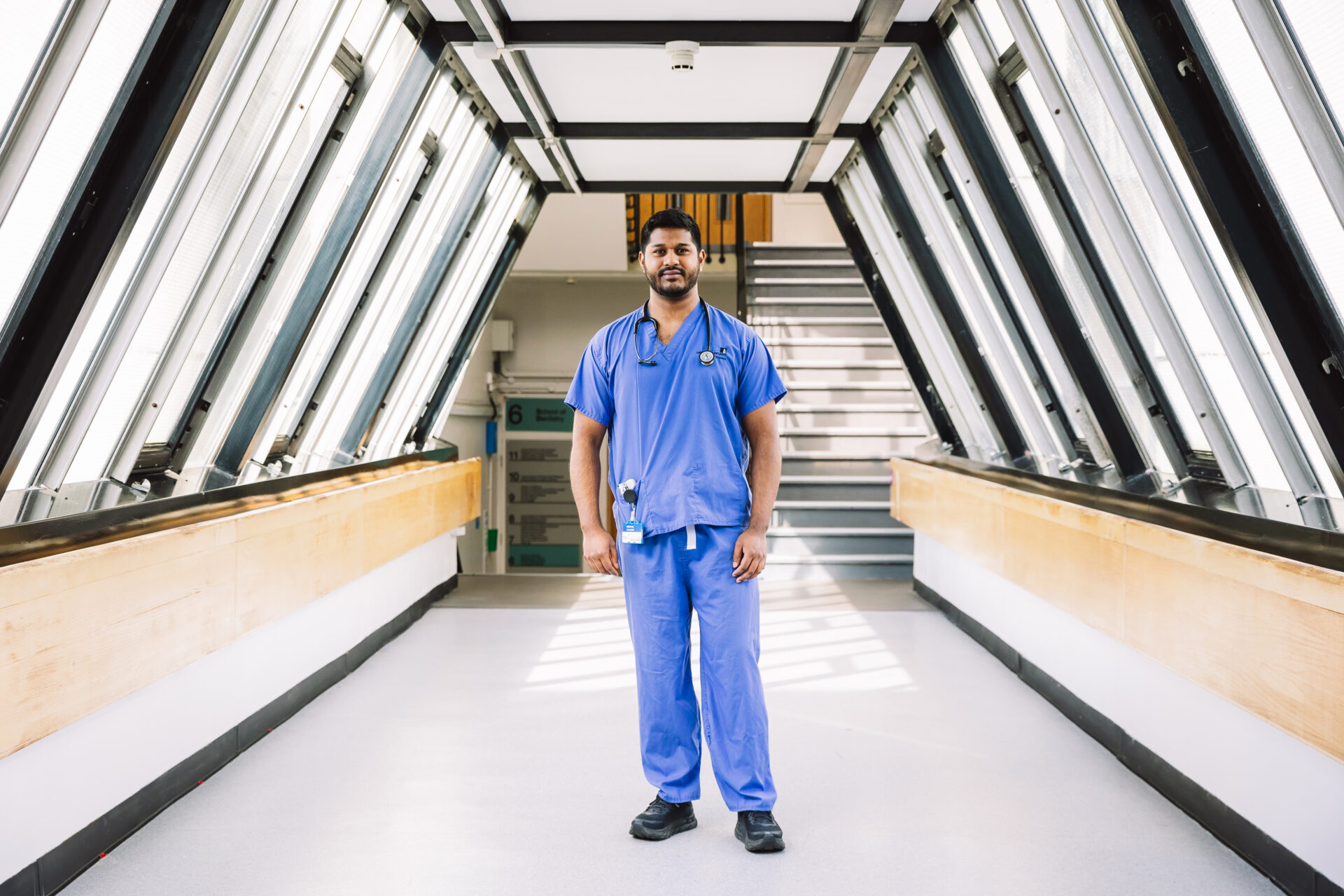Enam Ruf - MBChB Medicine and Surgery With Enterprise

Undergraduate Enam Ruf found combining his degree in medicine with a year studying enterprise at Leeds gave him a unique perspective on how to apply an entrepreneurial mindset to practising medicine.
Intercalating study to combine dual areas of interest
Studying Medicine and Surgery with a Masters in Enterprise and Entrepreneurship, Enam’s initial goal was to qualify as a doctor. ‘My main motivation was to practise medicine,’ he explains. ‘But I wanted to find a course that would give me an opportunity to take a year away from my medical degree, study something aligned with my other interests, and leave university with dual qualifications.’
‘I’ve always had a passion for business,’ adds Enam. ‘This interest grew as my medical degree progressed. Every Christmas, medical students spend two weeks attending workshops on a wide range of different subjects. In one session, Dr Richard Tunstall and Dr Stephen King from CEES ran a series of Dragons’ Den-style workshops and activities around enterprise in medicine. The following year, we had chance to help a university researcher create a business plan to take her innovative medical device to commercial level. These experiences cemented my enthusiasm to study at the business school.’

Winning scholarship through Spark
Enam entered his business idea, Motive – a platform to empower higher education students to create unforgettable experiences – into Spark’s business plan competition, and won. ‘The first place award was external validation from a panel of experienced and established entrepreneurs that our business idea was a good one,’ he says. ‘It was a springboard for us to increase the hours we were putting into the business, and with the funding we could assess support for product development, legislation, and IP advice.’
‘Winning the Spark competition also meant we could talk proudly about our start-up and let others know we were serious about making it a success,’ Enam adds. ‘I went on to pitch my business and myself as an entrepreneur, and was successful in securing an Enterprise Scholarship. This allowed me to access further funding, attend a two-day enterprise bootcamp, and network with dozens of entrepreneurs.’
Discovering new links between medicine and entrepreneurship
Despite initially viewing enterprise and medicine as two completely separate study areas, Enam was soon surprised by how closely the two disciplines were linked. ‘Many of the examples CEES use to support business theories are based on a recognised model: like the NHS,’ Enam explains. ‘My tutors explored how an entrepreneurial mindset was necessary to bring our healthcare system into the 21st century.’
‘It’s crucial we understand how a business mindset can support the NHS to consider new ways of doing things so health services operate as effectively as possible’, Enam continues. ‘We don’t address this subject in our medical degrees, so looking at the NHS structure, supply lines and systems with an entrepreneurial view gives me a better understanding of the organisation I plan to work within.’
Seeing a different side of the university experience
‘There have been many new opportunities available to me through enterprise that I’d never have experienced studying medicine alone,’ says Enam. ‘For example, the styles of learning in CEES are so different to those of the medical school, and the coursework-based assessment is a breath of fresh air! I’ve enjoyed looking at the psychology behind decision making, finding out how to provide consultancy for clients and exploring how digital transformations affect medicine.’
In addition to academia, Enam also feels joining CEES gave him chance to experience a different side of university. ‘Studying enterprise made me feel like a bigger part of the campus community,’ says Enam. ‘Medical students don’t always see much of traditional university life, so it was great to attend seminars, lectures and meet a huge variety of other students from different backgrounds – all with an interest in enterprise.’

Applying entrepreneurial theories in the real world
Enam plans to continue his medical degree and train as a surgeon, but he sees his combined enterprise and medicine background as a novel – and welcome – advantage. ‘It’s quite unique for doctors to have a dual qualification, especially in business,’ he says. ‘I want to find the right place to position my skillsets within the traditional NHS pathways so doctors, like I hope to be, can find enterprising ways to help patients and colleagues. I can now consider practising medicine with a critical thinking mindset, combining academia and entrepreneurship. For me, that’s a perfect blend.’
‘I highly recommend my peers consider studying enterprise – and that they pay full attention and make every note they can, as it’ll be invaluable!’ Enam concludes. ‘As time goes by, I’m finding I’m referring back to my course notes from my year in enterprise more and more frequently. I’m able to see growing value in what I learnt, steer conversations around sales and marketing and change the way I work in business and in medicine for the better.’
